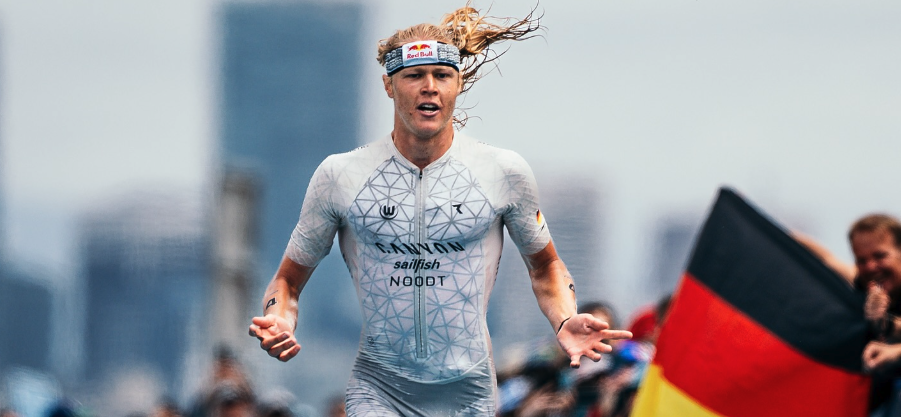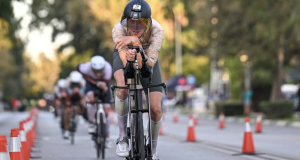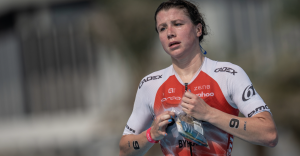The Professional Triathletes Organisation (PTO) has unveiled a major overhaul of the T100 Triathlon World Tour for 2026 — fewer races, changed prize purses, and, for the first time, separate start fields for men and women. German rising star Mika Noodt says – in an interview with Tri-Mag – the restructuring makes sense from a sporting perspective, but admits the changes come with a bittersweet edge.
A Leaner, Sharper Series
In mid-October, the PTO and World Triathlon announced that the T100 Tour will become more compact and performance-driven. The start lists will be tighter and based more strictly on current rankings, while prize money at each race will increase significantly. For Noodt, 25, the shift largely hits the right notes.
“Overall, I think what the PTO has done is quite positive,” Noodt told Tri-Mag. “Having fewer races actually motivates me more – it means that at every start line, the very best guys are there. That’s what athletes want.”
Under the new format, men and women will each contest four individual events before coming together for a combined Grand Final in Doha. Only an athlete’s top three results, plus the final, will count toward the overall standings. The PTO says this model will ease travel and recovery demands, raise the competitive standard, and make the series more engaging for broadcasters and fans alike.
Mixed Feelings About Gender Split
Still, not all of Noodt’s reactions are enthusiastic. One change he finds hard to embrace is the decision to hold men’s and women’s races separately throughout the regular season.
“It’s a bit of a shame emotionally,” he says. “Those joint race weekends were special – they created a shared energy and sense of community in the sport. Losing that feels like a step back, even if it’s logistically understandable.”
A Question of Money and Motivation
Another aspect that leaves Noodt cautious is the escalating prize money structure. While higher payouts are generally welcome, he warns that the sport must ensure money doesn’t become the only driver.
“Of course, we all want to make a living from this, but triathlon should never lose its sporting core,” he explains. “It’s important that the pursuit of prize money doesn’t overshadow what the competition itself stands for.”





